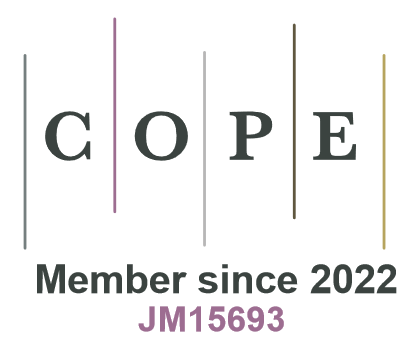Older people’s beliefs on prevention and etiology of cancer in Poland. Implications for health promotion
DOI:
https://doi.org/10.1515/anre-2015-0022Keywords:
health beliefs, cancer, aging, health promotion, cancer preventionAbstract
Introduction: Poland is among the countries with the highest mortality rates from cancer, and 75% of deaths from cancer occur after the age of 60. In the case of cancer, particular attention should be paid to beliefs people have in society. Aim of research: To learn about older people’s beliefs about the importance of preventive oncology care, individual’s responsibility for getting cancer, and the etiology of cancer. We analyzed the association between beliefs about cancer and the age of the respondents. Materials and Methods: The study was carried out in 2012 with a sample of 910 adult residents of Wrocław. An interview questionnaire was used. The article presents data on older adults (aged older than 56 years) (N = 188). Results: The vast majority of respondents recognize the need to engage in preventive oncology care. Only 5% of respondents hold fatalistic beliefs, 50% of older adults believe that “if someone is sick with cancer, it does not depend on them”. An association was confirmed that the oldest adults (65 years and older) are more likely to agree with the above statement, 34% disagree with the belief that “if someone is sick with cancer it depends largely on the lifestyle and the environment”. Discussion: In developing strategies for cancer prevention aimed at older adults, special attention should be paid to raising awareness about the impact of lifestyle on cancer incidence, increasing the sense of responsibility for their health, and reducing older adult’s “external locus of control” beliefs.
Downloads
References
Beeken RJ, Simon AE, von Wagner C, Whitaker KL, Wardle J. 2011. Cancer fatalism: deterring early presentation and increasing social inequalities?. Cancer Epidemiol Biomarkers Prev. 20(10):2127–31.
View in Google Scholar
Chojnacka–Szawłowska G. 2005. Opinions about cancer and health–related behaviour in the Polish society. In: T Maliszewski, WJ Wojtowicz, J Żerko, editors. Anthology of Social and Behavioural Sciences. Linkoping: Linkoping University. 393–401.
View in Google Scholar
Chavez LR, Hubbell FA, Mishra SI et al. 1997. The influence of fatalism on self-reported use of Papanicolaou smears. Am J Prev Med. 13(6):418–24.
View in Google Scholar
Chojnacka–Szawłowska G. 2007. Poczucie zagrożenia chorobą nowotworową przez palących i niepalących. In: G Chojnacka–Szawłowska, B Pastwa-Wojciechowska, editors. Kliniczne i sądowo – penitencjarne aspekty funkcjonowania człowieka. Kraków: Oficyna Wydawnicza IMPULS. 135–47. (in Polish)
View in Google Scholar
Chojnacka–Szawłowska G, Kościelak R, Karasiewicz K, Majkowicz M, Kozaka J. 2013. Delays in seeking cancer diagnosis in relations to beliefs about the curability of cancer in patients with different disease locations. Psychol Health. 28(2):154–70.
View in Google Scholar
Cornford CS, Cornford HM. 1999. „I’m only here because of my family”. A study of lay referral network. British Journal of General Practice 49:617–20.
View in Google Scholar
Didkowska J, Wojciechowska U, Zatoński W. 2009. Prediction of cancer incidence and mortality in Poland up to the year 2025. Warszawa: Centrum Onkologii, Instytut M. Skłodowskiej-Curie.
View in Google Scholar
European Commission EUROSTAT. 2009. [pdf] Available at http://epp.eurostat.ec.europa.eu/statistics [Accessed 29.10.2013].
View in Google Scholar
Freeman HP. 1991. Race, poverty, and cancer. J Natl Cancer Inst. 83:526–7.
View in Google Scholar
Freidson E. 1970. Profession of medicine: a study of the sociology of applied knowledge. Chicago: University of Chicago Press.
View in Google Scholar
Hagger MS, Orbell S. 2003. A meta–analytic review of the Common Sense Model of illness representations. Psychology and Health 18:141–84.
View in Google Scholar
Heidrich SM, Egan JJ, Hengudomsub P, Randolph, SM. 2006. Symptoms, symptom beliefs, and quality of life of older breast cancer survivors: A comparative study. Oncology Nursing Forum 33:315–22.
View in Google Scholar
Januszek-Michalecka L. et al. 2013. Effectiveness of the National Population-Based Cervical Cancer Screening Programme in Poland – Outcomes, problems and possible solutions 7 years after implementation. Annals of Agricultural and Environmental Medicine 20(4):859–64.
View in Google Scholar
Jemal A, Siegel R, Ward E. et al. 2009. Cancer statistics. CA Cancer J. Clin 59:225–24.
View in Google Scholar
Lannin DR, Mathews HF, Mitchell J, Swanson FH, Edwards MS. 1998. Influence of socioeconomic and cultural factors on racial differences in late-stage presentation of breast cancer. JAMA 279:1801–7.
View in Google Scholar
Lau RR, Hartman KA. 1983. Common sense representations of common illness. Health Psychol. 2:167–85.
View in Google Scholar
Leventhal H, Brissette I, Leventhal E.A. 2003. The Common Sense Model of self-regulation of health and illness. In LD Cameron, H Leventhal, editors. The self-regulation of health and illness behavior. London: Routledge. 42–65.
View in Google Scholar
Leventhal H, Meyer D, Nerenz D. 1980. The common sense representation of illness danger. Medical Psychology 2:7–30.
View in Google Scholar
Lykins ELB, Graue LO, Brechting EH, Roach AR, Gochett CG, Andrykowski MA. 2008. Beliefs about cancer causation and prevention as a function of personal and family history of cancer: a national, population-based study. Psycho-Oncology 17:767–774.
View in Google Scholar
Mayo RM, Ureda JR, Parker VG. 2001. Importance of fatalism in understanding mammography screening in rural elderly women. J Women Aging 13:57–72.
View in Google Scholar
Michielutte R, Dignan MB, Sharp PC et al. 1996. Skin cancer prevention and early detection practices in a sample of rural women. Prev Med. 25:673–83.
View in Google Scholar
Morgan R, Pendleton N, Clague JE, Horan MA 1997. Older people’s perceptions about symptoms. British Journal of General Practice 47:427–30.
View in Google Scholar
Niederdeppe J, Levy AG. 2007. Fatalistic beliefs about cancer prevention and tree prevention behaviors. Cancer Epidemiol Biomarkers Prev. 16:998–1003.
View in Google Scholar
Ohnishi H. 2001. Mental distress in cancer patients. Masui 60(9):1024–31.
View in Google Scholar
Ostrowska A. 2011. Profilaktyka zdrowotna: interpretacje, definicje sytuacji, racjonalności (przypadek profilaktyki ginekologicznej kobiet). Studia Socjologiczne 3(202):73–94. (in Polish)
View in Google Scholar
Peek ME, Sayaa JV, Markwardt R. 2008. Fear, fatalism and breast cancer screening in low income African-American women: The role of clinicians and the health care system. J Gen Intern Med. 23(11):1847–53.
View in Google Scholar
Powe BD. 2001. Cancer fatalism among elderly African American women: predictors of the intensity of the perceptions. J Psychosoc Oncol. 19:85–95.
View in Google Scholar
Royer HR, Phelan CH, Heidrich SM. 2009. Older breast cancer survivors’ symptom beliefs. Oncology Nursing Forum 36:463–70.
View in Google Scholar
Schwartz KL, Crossley-May H, Vigneau FD, Brown K, Banerjee M. 2003. Race, socioeconomic status and stage at diagnosis for five common malignancies. Cancer Causes Control. 14(8):761–66.
View in Google Scholar
Sontag S. 1999. Choroba jako metafora. AIDS i jego metafory. Warszawa: PIW. (in Polish)
View in Google Scholar
Steptoe A, Wardle J. 2001. Locus of control and health behavior revisited: a multivariate analysis of young adults from 18 countries. Br J Psychol. 92:659–72.
View in Google Scholar
Straughan PT, Seow A. 1998. Fatalism reconceptualized: a concept to predict health screening behavior. J Gend Cult Health 3:85–100.
View in Google Scholar
Tobiasz-Adamczyk B, Szafraniec K, Bajka J. 1999. Zachowania w chorobie. Opis przebiegu choroby z perspektywy pacjenta. Kraków: Collegium Medicum UJ. (in Polish)
View in Google Scholar
Underwood S. 1992. Cancer risk reduction and early detection behaviors among black men: focus on learned helplessness. J Community Health Nurs. 9:21–31.
View in Google Scholar
Wardle J, Steptoe A. 2003. Socioeconomic differences in attitudes and beliefs about healthy lifestyles. J Epidemiol Community Health. 57(6):440–3.
View in Google Scholar
Wojciechowska U, Didkowska J. 2014. Zachorowania i zgony na nowotwory złośliwe w Polsce. Krajowy Rejestr Nowotworów, Centrum Onkologii – Instytut im. Marii Skłodowskiej – Curie. Available at http://onkologia.org.pl/raporty [Accessed 30.12.2014] (in Polish)
View in Google Scholar
Yancik R, Ries LA. 1994. Cancer in older persons. Magnitude of the problem – how do we apply what we know? Cancer 1;74(7 Suppl):1995–2003.
View in Google Scholar
Downloads
Published
How to Cite
Issue
Section
License

This work is licensed under a Creative Commons Attribution-NonCommercial-NoDerivatives 4.0 International License.








